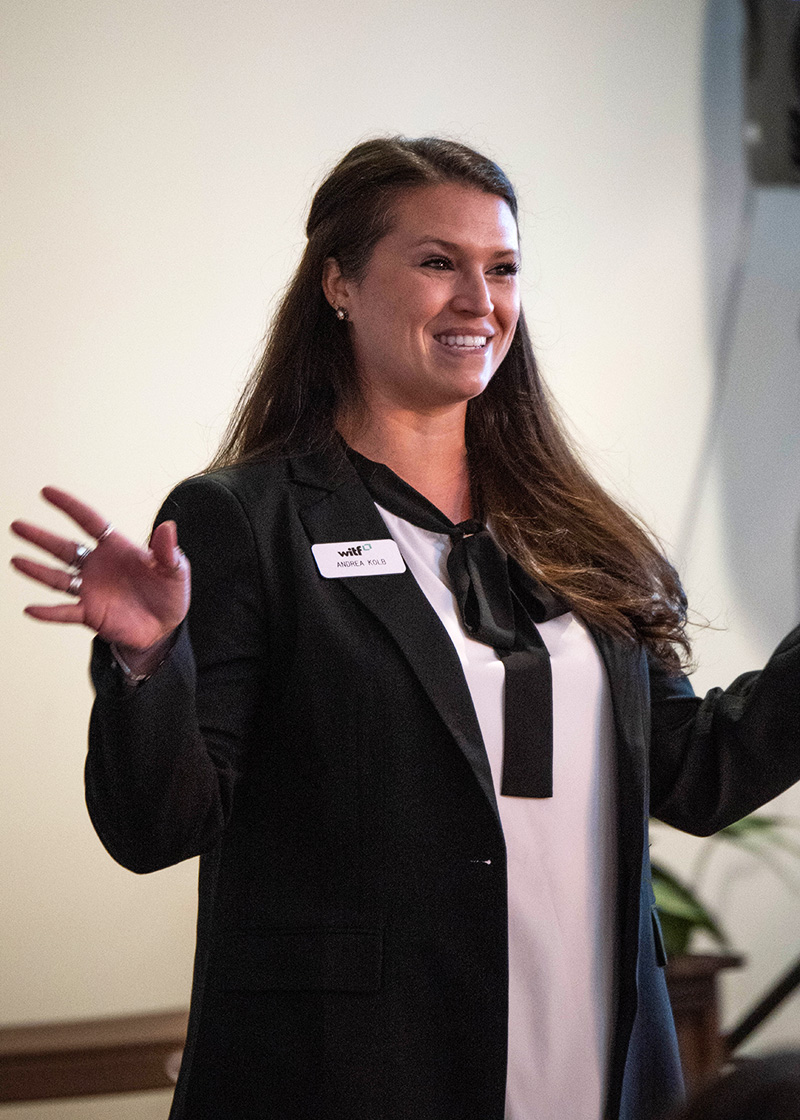Andrea Kolb
Dr. Andrea G. Kolb is the Senior Vice President of Education at WITF, the leading public media organization in Central Pennsylvania that specializes in educational initiatives across the lifespan. In this role, Dr. Kolb supports in-school and out-of-school educators across the Commonwealth by providing technical assistance, teacher professional learning, educational program support, and instructional coaching.
She also serves as a professional learning consultant to the Pennsylvania Department of Education’s English Language Development division.

Andrea can speak to your organization about:
Culturally Responsive Teaching and Leadership
Educators across the nation continue to struggle with the implementation of Culturally Responsive Teaching. Andrea deep dives into the concept and recent research that positions culture and language as cognitive scaffolds. Educators gain the tools they need to move away from seeing culturally responsive teaching as an “add-on” of holidays, heroes, and bulletin boards and towards instructional designs that leverage cultural and linguistic frames of reference rooted in the ways we experience the world.
Educational Linguistics
Andrea addresses language as an integrative system and investigates phonology, morphology, semantics, syntax, discourse, and pragmatics. Participants develop an understanding of the structure and sound systems of English in relation to other languages and in relation to a variety of teaching strategies, and pedagogical language knowledge with regards to the ways students’ rich linguistic repertoires are used in learning a new language.
Sociolinguistics
Language is a social activity and language practices are rooted in communities’ cultural practices, geography and social identities informed by socioeconomic class, race and ethnicity, gender identities, age and more. Powerful social hierarchies place greater value on certain languages, dialects, and registers. Andrea discusses humanizing pedagogies that affirm the validity of all languages and dialects, how to design instruction that expands students’ linguistic repertoires, and methods that raise students’ consciousness of their own language practices so they can make decisions about how to leverage their various linguistic assets to be a successful communicator.
Distinguishing Language Development from Learning Disability
Educators often face the challenge of determining whether an English Learner (EL) is exhibiting behaviors characteristic of language development or learning disability. Participants will analyze common scenarios, discuss factors that must be considered when distinguishing between language development and disability, and explore the use of educational technology to assist in accessing students’ content knowledge and language skills in their primary/home language.
Resituating Academic Achievement Gaps as Opportunity Gaps
Educators spend a lot of time talking about achievement gaps, but what opportunities do we expect students to already have when they enter our classrooms? What opportunities do they need to achieve the standards-aligned goals we set for them? Are there gaps in students’ access to those opportunities? Participants will discuss these questions, investigate practices rooted in deficit thinking, and brainstorm ways to offer equitable opportunities that help close the gaps.
Supporting the Educational Success of Immigrant Students and Families
Andrea explores the demographic characteristics of Pennsylvania’s immigrant population and takes a closer look at characteristics of refugees and students with limited or interrupted formal education (SLIFE). Participants will dive into programmatic decision-making – from evaluating transcripts, determining grade placement, assessing content knowledge and language skills in their primary language(s), designing graduation plans, and more – and examine strategies to ensure instruction is accessible, targets knowledge gaps and facilitates content and language growth.
Request Andrea to Speak to Your Group
Andrea is also available to lead one-on-on interviews with a guest, moderate panel discussions and emcee events.

